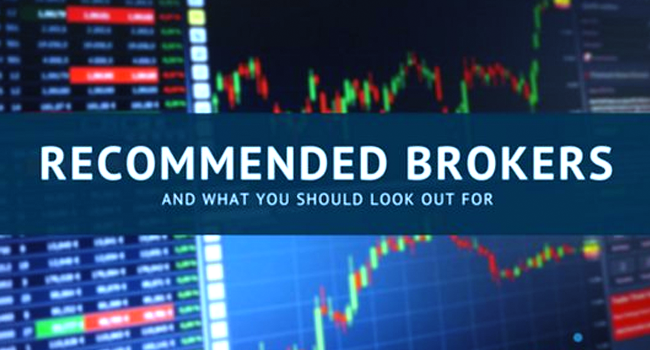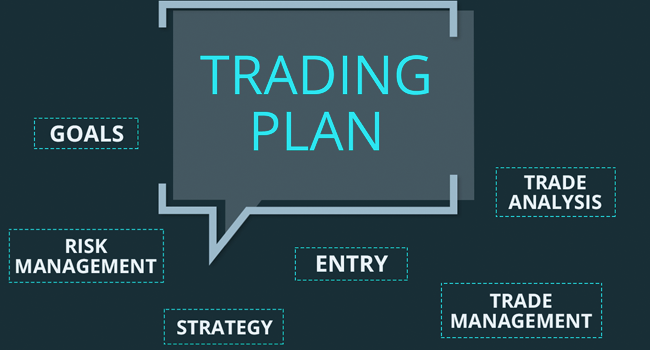Selecting the Right Account Type Of Forex
Forex brokers often offer multiple account types to cater to the diverse needs of traders. When selecting an account type, consider factors such as your trading capital, risk tolerance, and trading strategy.
Common account types include:
Standard Accounts
Standard accounts are suitable for most traders and often require a moderate initial deposit. These accounts offer standard trading conditions, spreads, and leverage levels.
Mini and Micro Accounts
These accounts allow you to trade smaller lot sizes, making them ideal for beginners or traders with limited funds.
ECN Accounts
ECN (Electronic Communication Network) accounts provide direct access to the forex market’s interbank liquidity. They offer tight spreads and typically charge a commission per trade.
Islamic Accounts
Islamic accounts, also known as swap-free accounts, are compliant with Islamic Shariah law, which prohibits the payment or receipt of interest. These accounts are designed for Muslim traders who seek to avoid interest charges on overnight positions.
Before selecting an account type, carefully review the trading conditions, spreads, commissions, and other fees associated with each account. Choose an account that aligns with your trading preferences and financial goals.
Utilizing Demo Accounts for Evaluation
Most reputable forex brokers offer demo accounts that allow you to practice trading with virtual funds. Demo accounts provide a risk-free environment to familiarize yourself with the broker’s trading platform and test your trading strategies in real market conditions.
Utilize the demo account to assess the broker’s trading platform, execution speed, and available trading tools. Pay attention to the user-friendliness of the platform, as a complicated interface can hinder your trading experience.
Additionally, use the demo account to evaluate the quality of customer support. Reach out to the broker’s support team with any questions or concerns and observe their responsiveness and helpfulness.
By using a demo account, you can gain valuable insights into the broker’s services and determine if it meets your trading needs and expectations.
Checking Reviews and Reputation
Reading reviews from other traders can provide valuable insights into a broker’s reputation and the quality of its services. Look for reviews on reputable forex forums, review websites, and social media platforms.
Consider both positive and negative reviews, and look for any recurring patterns or common themes in the feedback. While no broker is immune to negative reviews, a consistent pattern of unresolved complaints or suspicious practices should raise a red flag.
Additionally, research the broker’s history and track record. Established brokers with a proven track record of providing excellent services and transparency are more likely to be reliable and trustworthy.
Comprehending the Broker’s Fee Structure
Forex brokers generate revenue through various fees and charges. It’s essential to understand the broker’s fee structure to accurately assess the costs associated with your trading activities.
Common fees and charges include:
Spreads
Spreads are the difference between the buy and sell prices of a currency pair. Brokers may offer fixed or variable spreads. Variable spreads can widen during periods of market volatility, impacting your trading costs.
Commissions
Some brokers charge a commission per trade, particularly for ECN accounts. Consider the impact of the commission on your overall trading costs.
Overnight Financing Costs (Swap Rates)
If you hold a position overnight, you may incur overnight financing costs known as swap rates. These costs are associated with the interest rate differential between the currencies in the pair.
Inactivity Fees
Some brokers charge inactivity fees if your trading account remains dormant for an extended period. Be aware of any inactivity fees and choose a broker that aligns with your trading frequency.
Withdrawal Fees
Verify if the broker imposes any withdrawal fees, as excessive withdrawal charges can affect the ease of accessing your profits.
Deposit Fees
Similarly, check if the broker charges fees for deposits and consider the impact on your trading capital.
Evaluating Customer Support
Effective customer support is crucial for resolving any issues or inquiries promptly. Before committing to a broker, test their customer support by reaching out with questions or concerns.
Observe their response time, communication channels (e.g., live chat, email, phone), and the level of helpfulness and professionalism provided by the support team.
Customer support is especially vital during times of technical difficulties or urgent trading matters. Choose a broker that offers reliable and responsive customer support to ensure a smooth trading experience.
Understanding Forex Accounts
When you decide to trade forex, you will need a trading account through which you execute your trades. There are several types of forex accounts to choose from, each catering to different trader needs. Let’s explore the four main types of accounts.
H1: Demo Accounts
A demo account, also known as a practice account, is an excellent option for beginners. Demo accounts simulate real market conditions, offering valuable insights into the trading platform and various strategies without risking real money. They provide a safe space to gain experience and
confidence before transitioning to live trading.
H1: Micro Accounts
Micro accounts are designed for traders who want to start with a small investment. These accounts require a minimal initial deposit, making them accessible to traders with limited funds. Trading with micro accounts allows for lower risk exposure as you can trade smaller lot sizes. This type of account is suitable for those who are still learning or testing new strategies.
H1: Mini Accounts
Mini accounts strike a balance between micro and standard accounts. They require a moderate initial deposit and offer more features than micro accounts. Mini accounts provide greater flexibility in terms of position sizing and risk management. They are ideal for traders with some experience who want to trade with slightly larger positions.
H1: Standard Accounts
Standard accounts are tailored for experienced and professional traders. They usually require a significant minimum deposit and offer access to various financial instruments. Trading with standard accounts allows for more substantial trades, but it also involves higher risk exposure. This account type is best suited for traders with a proven track record and sufficient capital.
Factors to Consider When Choosing an Account Type
Selecting the right account type is a crucial decision that should be based on various factors, including:
H2: Trading Experience and Skill Level
Consider your level of experience in forex trading. Beginners may find demo accounts or micro accounts more suitable, while seasoned traders may prefer standard accounts to accommodate their strategies.
H2: Risk Tolerance
Evaluate your risk tolerance carefully. If you are risk-averse, starting with a demo account or a micro account can be a wise choice. For those comfortable with higher risk, mini and standard accounts could be viable options.
H2: Capital Size
Assess the amount of capital you can afford to invest in forex trading. Different account types have varying minimum deposit requirements, so choose one that aligns with your financial capacity.
H2: Trading Strategies
Consider the trading strategies you intend to use. Some strategies may work better with specific account types. For instance, scalpers might prefer accounts with low spreads, while long-term traders may focus on overnight swap rates.
Pros and Cons of Each Account Type H3: Demo Accounts
Pros:
Risk-free practice environment
Familiarization with trading platforms
Testing of new strategies
Cons:
No real profits or losses
Emotions may differ from live trading
H3: Micro Accounts
Pros:
Low minimum deposit
Lower risk exposure
Opportunity to trade with real money
Cons:
Limited features and trading options
H3: Mini Accounts
Pros:
Moderately sized positions
Reasonable initial deposit
Suitable for intermediate traders
Cons:
Still limited in trade size compared to standard accounts
H3: Standard Accounts
Pros:
Full range of trading instruments
Ability to trade larger volumes
Preferred for experienced traders
Cons:
High minimum deposit
Higher risk involved
Making the Right Decision
In conclusion, selecting the right account type is a critical step in your forex trading journey. Assess your trading experience, risk tolerance, capital size, and strategies carefully. Choose an account type that aligns with your goals and provides a comfortable trading environment. Remember, you can always switch account types as your trading skills and preferences evolve.
FAQs After the Conclusion
Q: How do I open a demo account?
A: You can open a demo account with most forex brokers by providing some basic information on their website.
Q: Are standard accounts only for professional traders?
A: While standard accounts suit experienced traders best, anyone meeting the minimum deposit can open one.
Q: Can I change my account type later?
A: Yes, you can switch between account types with most forex brokers. Just ensure you comply with their requirements.
Q: Which account type is recommended for scalping?
A: Micro or standard accounts with low spreads are preferred for scalping strategies.
Q: Is there a limit on the number of demo accounts I can open?
A: It varies by broker, but you can often open multiple demo accounts to test different strategies.
Conclusion
Choosing the right forex broker is a critical decision that significantly impacts your trading success and overall experience. To make an informed choice, consider factors such as regulation, trading platform, spreads, leverage, account types, customer support, and fee structure.
A regulated and reputable broker ensures the safety of your funds and provides a stable and transparent trading environment. Utilize demo accounts to evaluate the broker’s services and customer support before committing real funds.
Remember that each trader’s needs are unique, so take the time to assess multiple brokers and select one that aligns with your trading goals, risk tolerance, and preferences. By choosing the right forex broker, you lay the foundation for a successful and rewarding trading journey in the dynamic world of forex markets.


